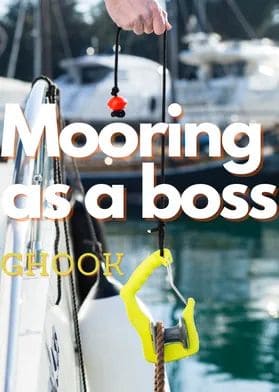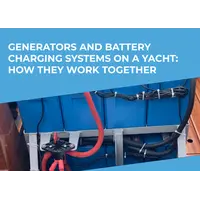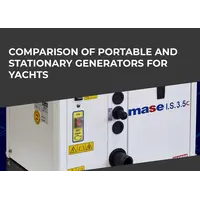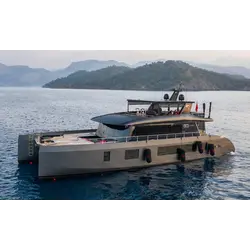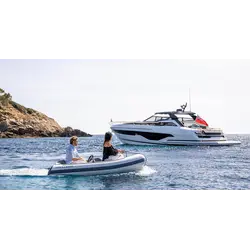Experts at topRik, based on their own experience of creating a charter company and assembling the SimpleSail charter fleet, explain what nuances should be taken into account when choosing a base for your charter yacht. In addition to the cost of parking, infrastructure features, logistics and services that are mentioned in the article, we introduce readers to the peculiarities of the jurisdiction of some countries when it comes to establishing a charter company and registering a yacht.
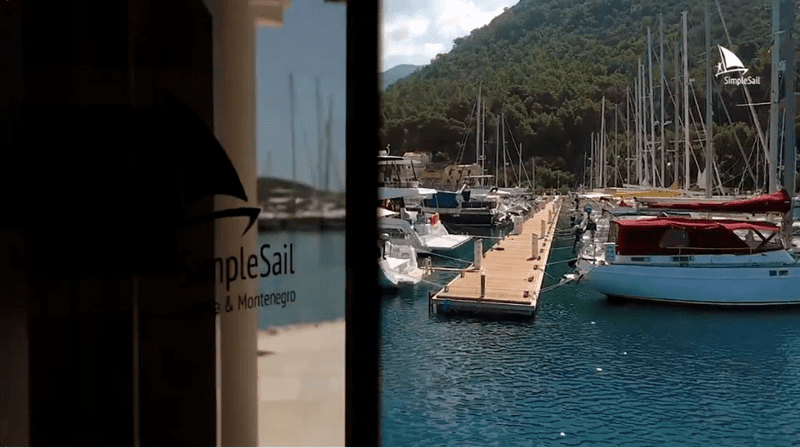
Customs Status of the Yacht in the EU
In accordance with the provisions of the EU Customs Code, in order to conduct charter activities, the yacht must be in free circulation in the EU, in other words, the yacht must be imported into the customs territory of the EU. This means customs clearance of the yacht in the country of import and payment of import VAT and any customs duties.
At the same time, operating the yacht for commercial purposes gives the owner the right to return paid VAT on the yacht or receive an exemption from paying import VAT, depending on the selected country of import.
Therefore, it is necessary to carefully consider the choice of import country, namely, pay attention to the following nuances:
- where the yacht is planned to be chartered;
- where is the permanent anchorage of the yacht;
- where the yacht and/or shipowner company is registered.
It should also be remembered that after placing the yacht into free circulation in the customs territory of the EU, the yacht, in order not to lose its European status, must not remain outside the EU territory for more than 3 years.
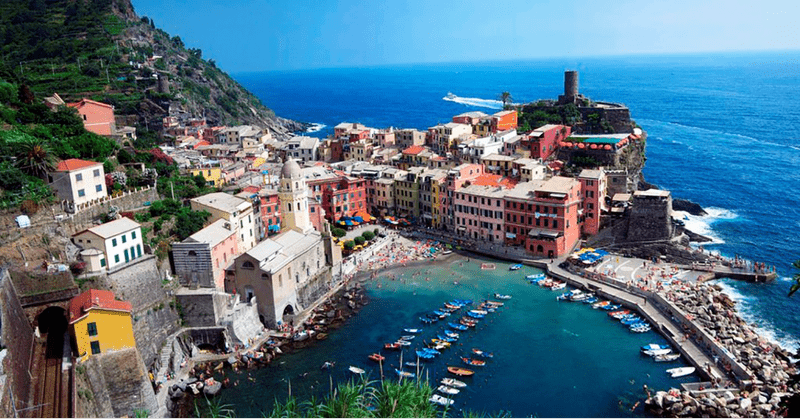
Commercial Registration
As a general rule, conducting charter activities requires the commercial yacht registration. At the same time, for charter activities in the EU it is not necessary to register a yacht under the European flag.
The conditions for commercial registration are more stringent than for pleasure registration, since commercial yachts are subject to more international conventions that the yacht must comply with, for example, the International Labor Organization Maritime Labor Convention, the International Convention on Standards of Training, Certification and Watchkeeping for Seafarers, etc.
An important nuance is the fact that the use of a commercial yacht for personal purposes is prohibited if a refund or VAT exemption has been issued for such a yacht. If the beneficiary of the charter company decides to operate the commercial yacht himself, he will need to enter into a formal charter agreement and pay freight at market value.
VAT Registration of the Charter Company
After choosing the optimal jurisdiction for registering a charter company, it should be noted that in accordance with EU Directives 2006/112/EC and 2008/8/EC, it must be registered as a VAT payer in the EU member state where the charter activity will be carried out.
VAT registration is required in order to pay VAT and subsequently submit reports on charters to the tax authorities of the countries where the charter took place. To this end, most European countries appoint a local tax representative who will arrange for the payment of the charter tax accrued on the charter company to the relevant tax authorities on behalf of the charter company.
The resulting VAT number can also be used to obtain a VAT refund when purchasing goods or services for a commercial yacht. It is important to note that such goods and services must have a clear connection with the yacht and its commercial operation.
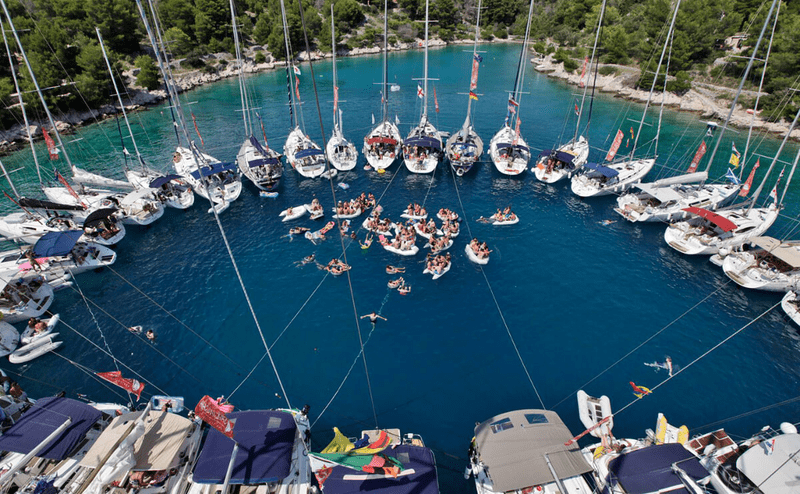
Specific Requirements of Charter Countries
The choice of the country where the yacht is planned to be chartered, i.e., the place in which the yacht will be delivered to charterers and, accordingly, services will be supplied to them, will be a determining factor, since the legislation of this country will directly regulate the charter activities of the yacht.
When choosing a base for a charter yacht, it should be taken into account that the legislation of the flag state imposes special requirements on commercial yachts, for example:
- tonnage restrictions – commercial yachts up to 400 GRT (gross) can be registered in Jersey registered tonnage, in Malta - up to 3000 GRT;
- length restrictions - in Malta a yacht of at least 15 meters can be registered as a commercial yacht;
- requirements for the nationality of the company that owns a commercial yacht. In particular, the owner of a commercial yacht registered in the EU can only be an EU citizen or a company registered in the EU.
France, Monaco, Republic of the Marshall Islands
The legislation of France and Monaco, as well as the Marshall Islands, allows the commercial operation of pleasure yachts that are under the customs regime of temporary import and registered in the registry under the special “Yacht engaged in trade” (YET) program. YET allows you to use the yacht for personal purposes and at the same time engage in charter for a maximum of 84 calendar days per year in the waters of the European Union without the need to reissue documents every time the owner either charters the yacht or goes on a cruise with his family.
To participate in the YET program, a yacht must be at least 24 m in length and meet the requirements applicable to a commercial yacht, and must also have a valid YET certificate of compliance issued by the Registry of France, Monaco or the Marshall Islands. The number of passengers on board the yacht must not exceed 12, otherwise the yacht will need to be registered as a passenger vessel.
The most comfortable time for yachting along the French coast is from late May to September. Small passages, easy navigation, well-developed infrastructure, many comfortable marinas and protected bays for anchorage. During the peak season - from mid-July to mid-August - the marinas are crowded, even at anchorage there is a high density of yachts.
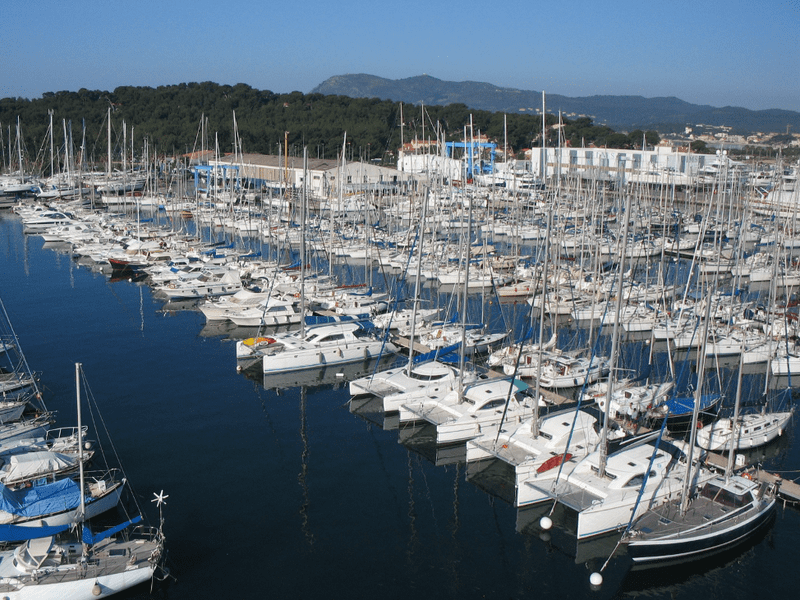
Spain
A peculiarity of charters in Spain is the need to obtain two charter licenses for all yachts conducting charter activities:
- general charter license;
- regional charter license - if the charter takes place in a specific region of Spain in which it is required.
In this country, paperwork poses certain difficulties, and taxation is higher than in other countries. Spain is also considered the most expensive country for providing services for repair, maintenance and mooring of a yacht. In addition, the market is oversaturated, and the number of interesting routes is minimal.
Spain's Costa Bravo offers easy navigation but a smooth coastline and few sheltered bays for anchorage. Almost all stops along the route along the coast are in marinas. Well-developed infrastructure, modern, comfortable marinas.
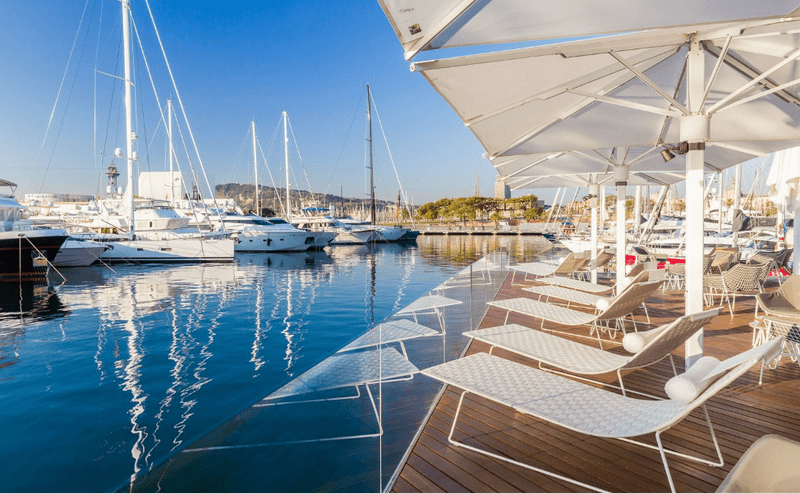
Croatia
In Croatia, yachts registered under a non-European flag are required to obtain a local charter license. Charter activities in Croatia can be carried out by yachts registered under the Croatian flag or any other EU flag. Foreign yachts can only be chartered if their length exceeds 40 meters. Otherwise, registration of companies is very simple and taxation is minimal.
Yachting in Croatia is suitable for beginner yachtsmen, family trips, sailing fleets and regattas. The water area is protected from storm winds and waves, navigation is easy, although there are shoals near the coast - you need to monitor the depth, moderate winds, small crossings. A well-developed yachting infrastructure, comfortable marinas, many closed bays for anchorages, equipped berths in the bays and buoys for moorings.
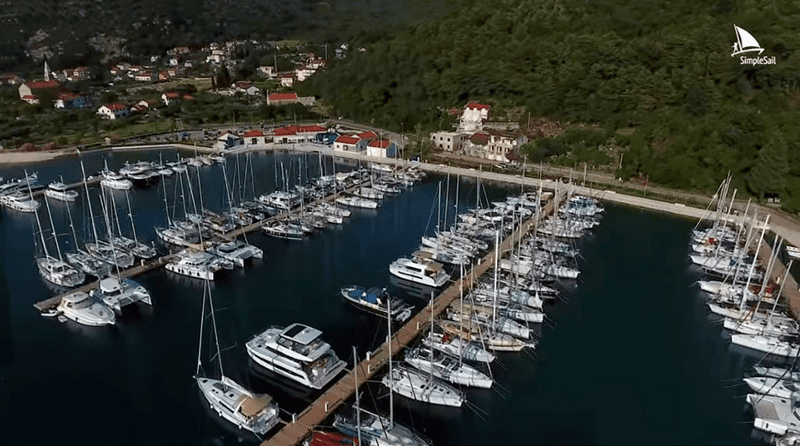
Greece
Perhaps this region is the most attractive for yacht owners. The charter company here has a special status and taxation is minimal. VAT 12% is returned quarterly. In addition, the fleet is not yet oversaturated. Loading can be up to 100% per season if the yacht is not older than 5-6 years and has an average size of 43-48 feet.
Easy navigation, short passages, moderate winds. Yachting in the Cyclades and Dodecanese is for more experienced yachtsmen, especially in July and August when the winds are strong and unstable. There are few comfortable marinas in Greece; on the islands they mostly moor at equipped city marinas: anchor + moorings to the pier; there are almost no moorings anywhere.
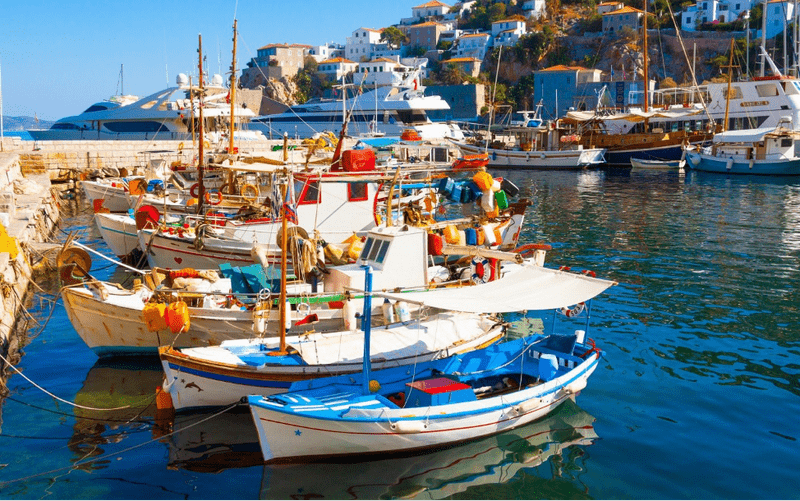
Turkey
Turkey practices a fairly favorable approach for foreign yachts used for charter and registered to offshore companies. Thus, a foreign yacht can be chartered subject to obtaining a special local license. At the same time, an offshore company (for example, a classic one registered in Panama) will not pay any taxes in Panama, but will only pay taxes in Turkey.
Yachting in Turkey is ideal for a comfortable holiday on a yacht, novice yachtsmen, traveling with children and sailing fleets and regattas. Excellent yachting infrastructure, comfortable marinas, equipped berths for yachts in bays, many protected anchorages, small passages, easy navigation.
Malta
In Malta, a yacht of at least 15 meters and not more than 3000 GRT can be registered as a commercial yacht. The main advantages of registering a commercial yacht under the Maltese flag are:
- possibility of operation within the EU without any restrictions on terms and regions;
- favorable tax regime for charter activities;
- no VAT on income received from the operation of commercial yachts.
But keep in mind that the region is crowded with charter vessels. There are few interesting routes and the season is short. Yacht occupancy rarely exceeds 80%.
Daytime moorings are recommended. Well-developed yachting infrastructure, comfortable marinas, many closed bays for anchorages.
Italy
The most beautiful region, especially Sardinia. It is not yet crowded with yachts, there is room for development, but the season is very short. It starts in mid-June and ends at the end of September. Since October 1, everything is closed and charter yachts are not in demand. There are bases in Naples, but the infrastructure there is underdeveloped.
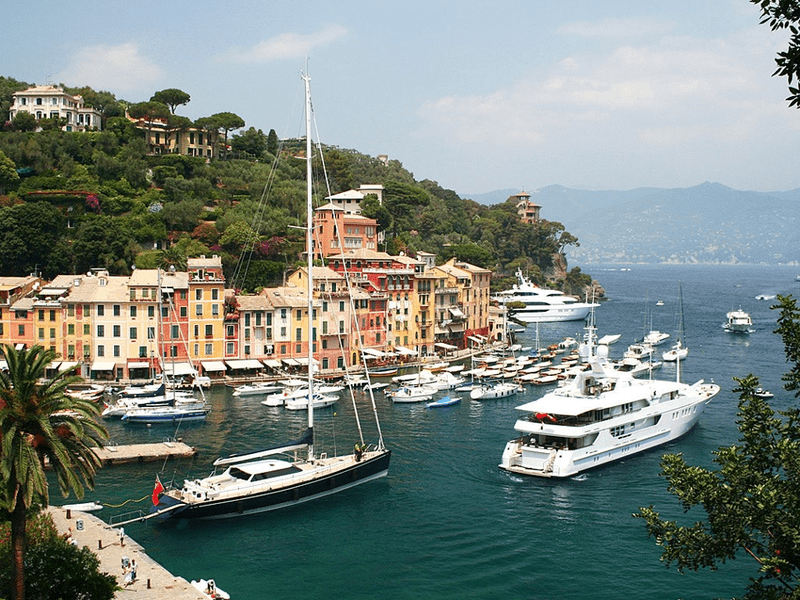
As we can see, the implementation of charter activities in the EU is associated with a large number of features that need to be taken into account. You already can see that it is impossible to definitively answer the question of where to place, register and insure a charter yacht – it all depends on your requirements. We hope that this article at least narrowed your search.
Before starting charter activities, we advise you to consult with qualified lawyers in order to assess all possible risks and develop the optimal approach. Thank you for your time!

